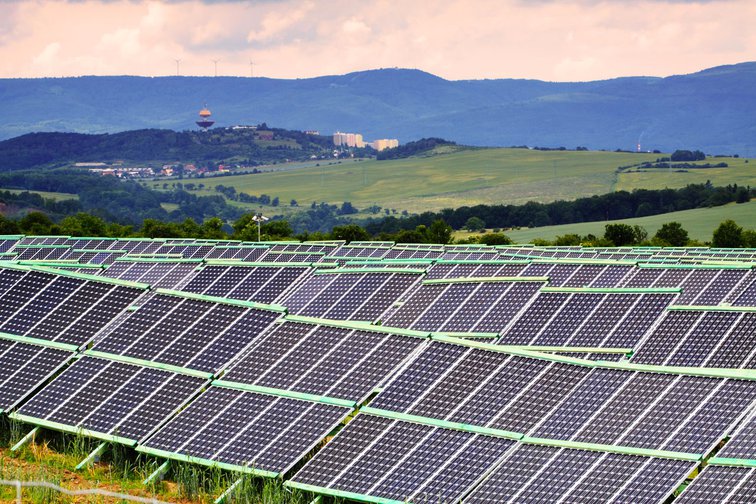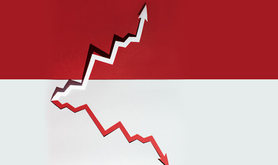
Tackling the climate crisis requires immediate action, and calls for an equitable and just transition are gaining strength. Last week, the United Nations Conference on Trade and Development (UNCTAD) published its latest annual report, calling for a Global Green New Deal. Acknowledging that “public banking is undergoing something of a renaissance,” UNCTAD maintains that public banks can lead the way in financing a Global Green New Deal.
The question “How can public banks do it?” needs elaborating, since they are more market-driven now than in previous decades and their roles are often geared towards taking on private sector investment risks rather than pursuing the public interest.
Our report, A US Green Investment Bank for All: Democratized Finance for a Just Transition, published as part of the Next System Project, tackles these problems. We advance an argument for a US Green Investment Bank (GIB) whose design can facilitate a green and just transition.
No time to fail
From Canada to France, the Nordic countries to Costa Rica, there are successful public banking examples around the world. In the United States, one of the best-known examples is the Reconstruction Finance Corporation. Formed in 1932, it helped reinvigorate commercial lending and played a key role in financing the New Deal. There is also the 100-year-old Bank of North Dakota, which supports local commerce and industry while contributing to the state budget. The North American Development Bank is an important funder of public water and sanitation infrastructure along the US/Mexico border area. There is no shortage of success stories, even though neoliberal ideologues have done all they can to hide these from view.
Public banks occupy a central position in the climate agenda because of the failure of private finance to fund a global green transition. Despite having far greater numbers and assets than public banks, private banks are not pulling their relative weight in climate finance. Their short-term, high-return regime subordinates the climate agenda to capital accumulation. That is why, in many countries, public banks are the pioneers of green lending. With only 20% of total assets, public banks invest nearly as much as all private banks combined.
In our report we suggest that a public GIB should function according to a triple bottom line: (1) a green and just transition; (2) financial sustainability; (3) and democratic decision-making.
The GIB must use its financial capacity for greening the economy. But we must make the GIB accountable, representative, and democratic so that private interests cannot hijack the green transition. Financial sustainability needs to be pursued in line with these objectives.
Ensuring financial sustainability requires a balance between non-for-profit lending and for-profit lending. Maintaining that balance follows from the bank’s public interest mandate. This implies that the GIB’s sources of capital and lending policy are aligned with its democratically determined green and just transition mandate. In this framework, the GIB can draw from private capital markets, but only as long as those sources of capital do not undermine the bank’s core directive. There is no ready-made answer for this, and this is why the GIB needs a democratic structure and built-in opportunities for broad-based deliberation.
An emergent public banking movement
Despite the challenges of neoliberalism, a vibrant, community-driven, yet nationwide movement that recognizes the value of public banking has emerged in the US since the 2008-09 global financial crisis. Grassroots movements are vital for the provision of a hub-and-spoke public banking system.
In our proposal, the US GIB sits at the hub of a national system of regional public development banks that in turn work collaboratively with communities and their local public and cooperative banks. In accord with the triple bottom line, the funding of a green and just transition through a hub/spoke system can benefit from working within and across different scales while benefiting from (and respecting) local knowledge and socioeconomic priorities. We recommend applying the principle of subsidiarity by attempting to devolve decision-making to the smallest possible scale while also designing means of multi-scale representation across the hub/spoke model. Democratization, in this sense, is the only viable strategy able to armor a GIB against undue and undemocratic abuse.
Public banking capacity is critical for furthering a socially progressive agenda, and opening up public banks to democratic deliberation is vital to maintaining a progressive, green, and just orientation.
A new US GIB can make use of existing and alternative sources of finance, channel resources effectively, learn from successful green lending projects, and itself be a model for collaborative public sector initiatives to green the economy. In order to do so, the GIB must work with local banks and communities – ensuring accountability and transparency.
The burden of a green transition cannot fall disproportionately on the disadvantaged, the working poor, and the most marginalized in society. By using public financial alternatives, and democratizing them, it is possible to have green and just financial institutions that are both commanded by and working for the public good.





Comments
We encourage anyone to comment, please consult the oD commenting guidelines if you have any questions.